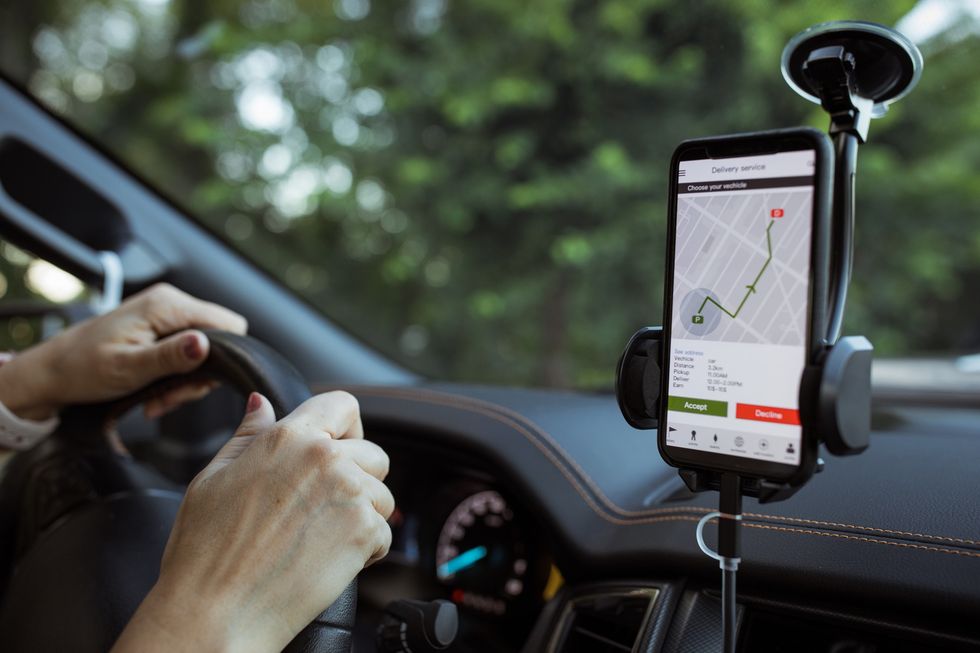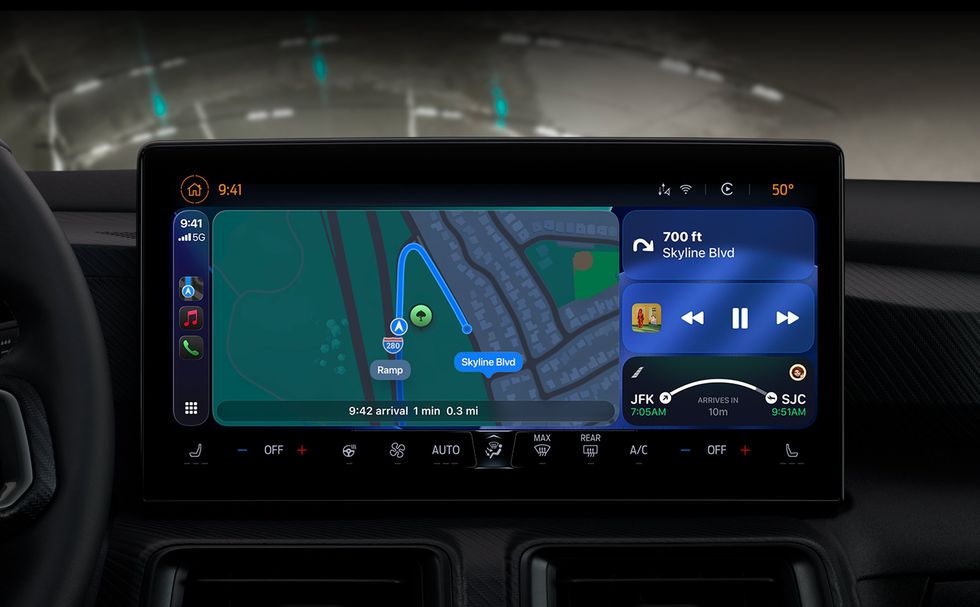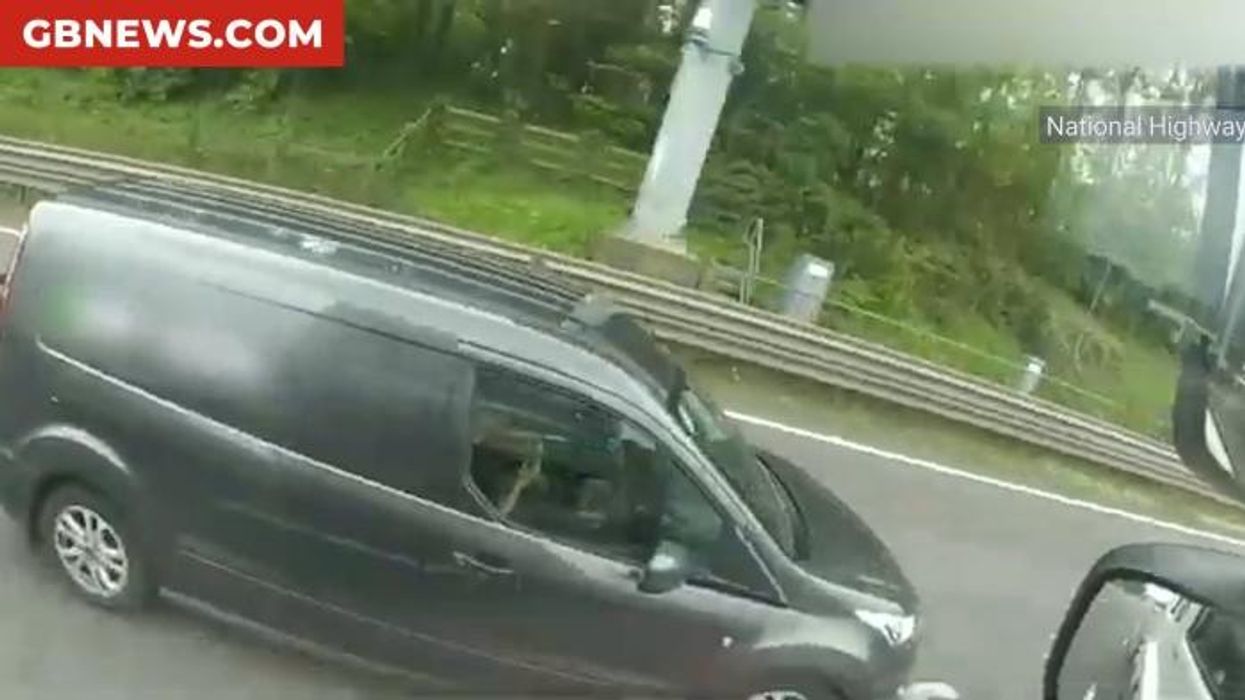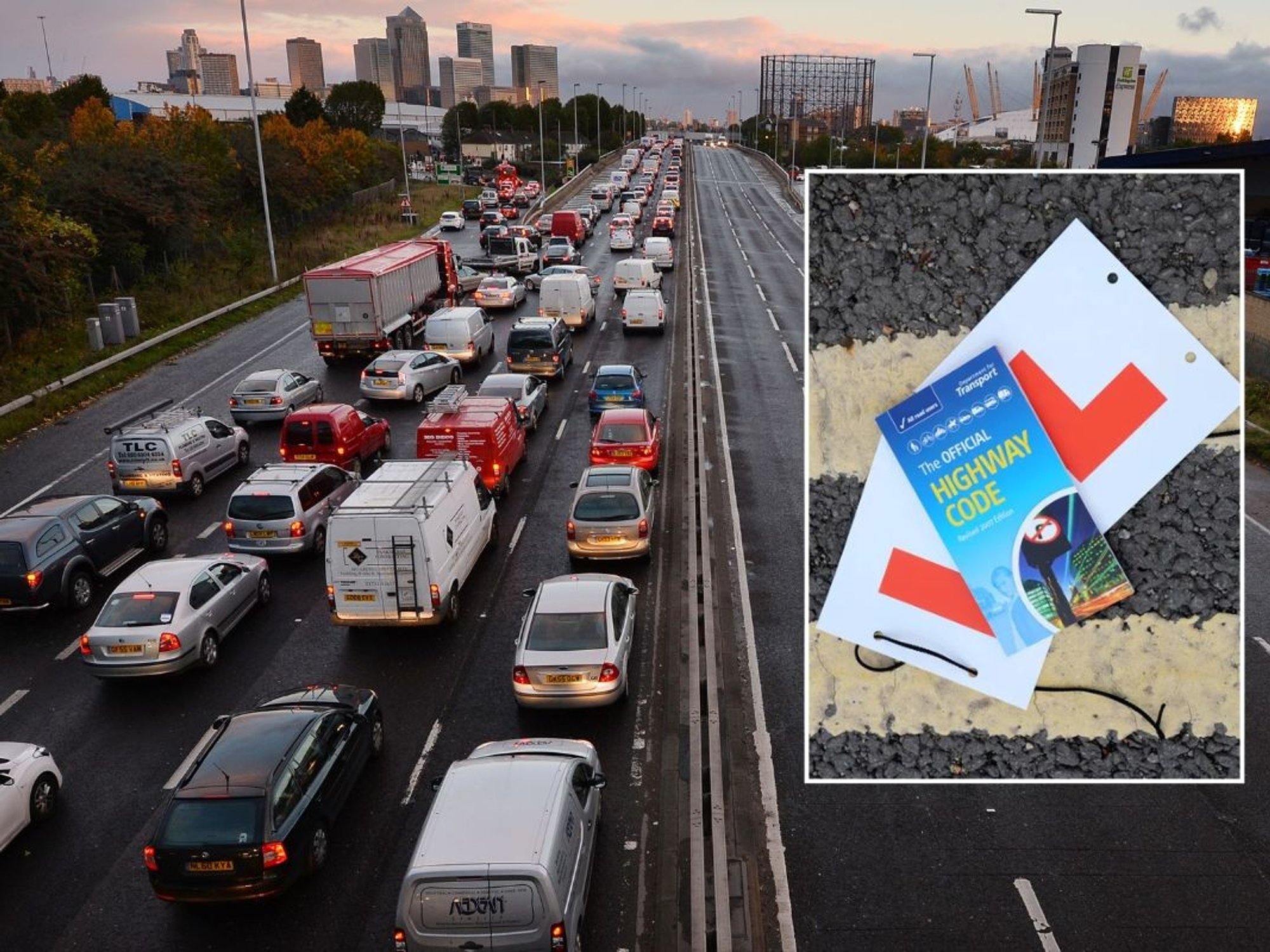Drivers at risk of £200 fine for breaking Highway Code after fresh car update - 'Interactive entertainment'

Rule 149 of the Highway Code dictates that drivers must not use any devices while behind the wheel
Don't Miss
Most Read
Britons have been warned they could be slapped with £200 penalties and points on their driving licence following a new car update which risks breaching Highway Code rules.
The warning follows the new iOS CarPlay update, which could tempt motorists into using screens while behind the wheel on UK roads.
In the UK, the use of mobile phones or other electronic devices is illegal for drivers and also breaches Rule 149 of the Highway Code.
Experts have now warned that while Apple CarPlay has been designed as a safer, integrated way to use mobile phone functions in vehicles, interacting with the screen while driving could still be classed as an offence.
TRENDING
Stories
Videos
Your Say
Rule 149 of the Code states: "You MUST exercise proper control of your vehicle at all times. You MUST NOT use a hand-held mobile phone, or similar device, capable of interactive communication (such as a tablet) for any purpose when driving or when supervising a learner driver.
"This ban covers all use of a hand-held interactive communication device, and it applies even when the interactive communication capability is turned off or unavailable."
It also detailed how drivers must not pick up the phone or similar device while driving to dial a number or use the device while stationary in traffic.
The new iOS update introduces expanded CarPlay features, including more interactive music and podcast controls, real-time notifications, messaging previews, and customisable dashboard displays.

The new iOS update could cause more drivers to touch screens while behind the wheel
|PA/GETTY
While designed to improve convenience, these functions could also cause drivers to glance at or tap the screen more often, "encouraging them to pay more attention to entertainment or notifications than the road ahead".
Car maintenance experts Fixter shared: "Never scroll, type, or tap while your car is moving. Even something as simple as switching a song or checking a notification on-screen can count as illegal use.
"Remember, traffic lights still count: It might feel okay to have a quick glance when you're stationary at a traffic light; however, it's important you're still alert."
The spokesperson detailed how it remains against the law to interact with mobile phones or CarPlay screens while stationary at red lights or in stop-start traffic.
 The Highway Code prohibits drivers from using mobile phones while behind the wheel | GETTY
The Highway Code prohibits drivers from using mobile phones while behind the wheel | GETTYLATEST DEVELOPMENTS:
- Driving law changes will tackle popular car habit as Labour hints at tougher sentences for motorists
- Drivers face 'devastating' consequences for insurance mistake leading to fines, points and fraud conviction
- Motorists fork out thousands in Low Emission Zone fines as petrol and diesel cars pay to travel on roads
In the UK, using a mobile device while travelling is illegal and can be punishable with a £200 fine and up to six penalty points.
This penalty can increase to £2,500 if the driver was operating a bus or lorry and is prosecuted in court. Drivers can also risk losing their driving licence if they pass their test in the last two years.
Experts explained that with Apple CarPlay, calls appear directly on the screen with the caller ID, but drivers still need to tap to answer unless they have a hands-free setup.
To stay safe and legal, Fixter recommended that drivers install voice commands to reply to messages or change music without taking their hands off the wheel.

Experts have warned that drivers could be at risk of breaking the law if found using devices while driving
|APPLE
The experts added: "CarPlay is a fantastic tool for modern drivers, but motorists should remember that safety and legality come first. If police believe you are distracted by your in-car system, you could face serious consequences.
"The golden rule is simple: set it up before you set off and ensure that features aren't distracting you while driving."
It has been illegal to use a mobile device while driving since 2003, with police forces warning that it is one of the Fatal Five on UK roads.
Other driving offences include speeding, drink and drug driving, not wearing a seatbelt, and careless driving, all of which have contributed to more road fatalities.











